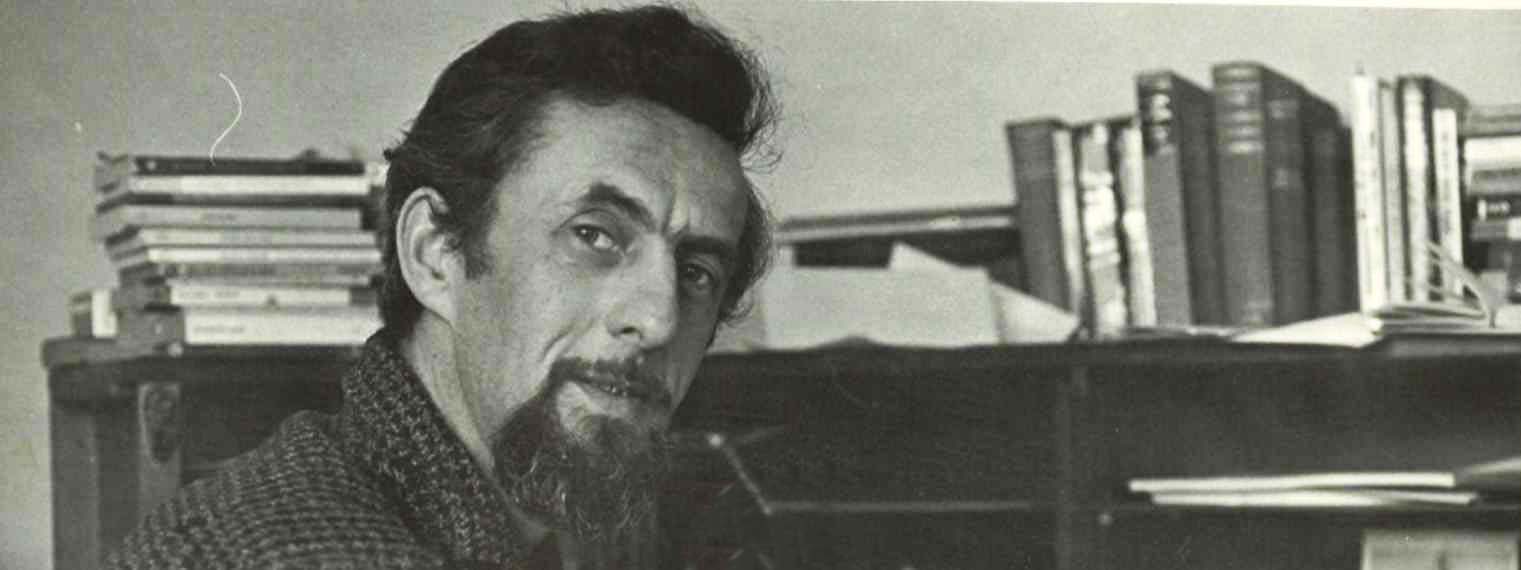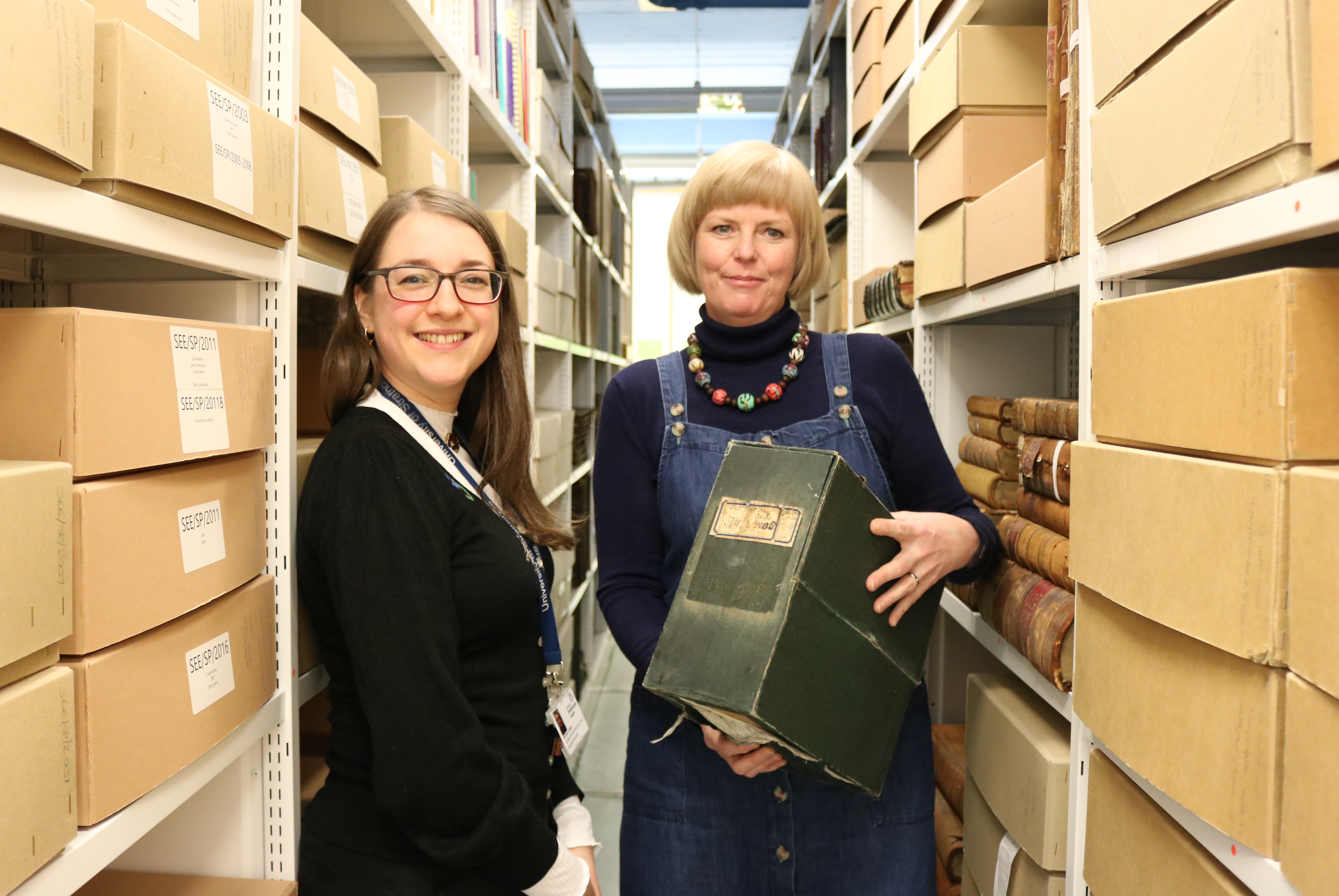
A long-lost manuscript of a classic Scottish novel has been acquired by the University of Strathclyde’s Archives, after it was donated by the author’s family.
The Dear Green Place, by Archie Hind, was published in 1966 and is widely regarded as a masterpiece of Scottish literature.
He also published numerous plays and short stories, as well as many reviews and articles, but had no other novels published in his lifetime. A second novel, Fur Sadie, remained unfinished at the time of his death in 2008, although it was published posthumously in incomplete form.
However, The Dear Green Place secured his reputation as a writer and won Hind several awards, including the Guardian Fiction Prize and the Scottish PEN Frederick Niven Award.
The typewritten, annotated manuscript runs to more than 200 pages and was donated to Strathclyde’s Archives by Hind’s family, after one family member was clearing out while preparing to move abroad.
Correspondence with family, friends, colleagues and publishers, photographs and scrapbooks have also been donated. They include letters between Hind and the late writer and artist Alasdair Gray, a close friend of his.
The manuscript and other material will inform a planned series of events and publications leading up to Hind’s centenary in 2028. The papers will require to be processed, catalogued and digitised before they are made available to researchers.
The donation will ensure that the collection is preserved for future research.
Dr Eleanor Bell, Senior Lecturer in English in Strathclyde’s Department of Humanities, is leading the project. She said:
While The Dear Green Place is widely regarded as one of the most important Scottish novels of the 20th century, few resources exist on Hind’s work. The manuscript of his famous novel has often assumed to be lost, or perhaps burned, so imagine our excitement when we discovered that not only was the manuscript still in existence, but also many other significant papers relating to his life and work.
“As implied by its title, The Dear Green Place demonstrates a deep connection with, as well as a deep love for, the city of Glasgow. However, its vision is far from romantic.
“I have been teaching The Dear Green Place for many years as part of my undergraduate module on The Glasgow Novel. One of the most compelling aspects of the text for students is that it tells the story of a writer struggling to write his own Glasgow novel. Up until now I’ve never been able to tell the students very much about Hind. It has therefore been a real privilege to spend time with Archie’s family over the past year and to find out more about the context of his life and work.”

In a statement, the Hind family said:” It took a while for us to gather together Archie’s work as it was scattered everywhere among family photos, papers, boxes and even amongst piano partitions. Our parents weren’t known for their executive function skills but they had kept more than we had hoped for, albeit in a haphazard manner.
Chance meeting
“We had almost given up the search for someone or somewhere to take it, as several places had been contacted but had come to nothing. We found Dr Bell by a series of fortunate events and a chance meeting - just as the boxes of old papers were about to be packed away into yet another dusty cupboard, to lie around for another few decades. This would have been such a shame as there were some very interesting bits and pieces. Dr Bell was the first person we approached who responded with genuine enthusiasm, interest and curiosity.
So we are delighted and proud as a family that our father’s body of work is now an archive and in the safe hands of the University of Strathclyde and Dr Bell. We look forward to seeing how this archive evolves. We believe that Archie would have appreciated all this and we, his family, are hugely proud that finally his work will now become accessible, can be shared and ultimately valued.
The Dear Green Place, which is largely autobiographical, tells the story of the life of Mat Craig, an aspiring writer living in the East End of Glasgow, and the moral and artistic dilemmas his ambitions create for him. It also vividly depicts the city in the post-war era – a quality identified by contemporary reviewers in 1966.
In his review in the Evening Times, Jack House, widely known as ‘Mr Glasgow,’ wrote: “I think that we have a real Glasgow novelist in the making here. He loves Glasgow but sees the city clearly.”
In the Herald, Norman Thomson wrote: “It is…cause for rejoicing when a new Scottish novelist, with something to say about Glasgow and its people, wins through to publication.”
Archie Hind was born in the Carntyne district of Glasgow in 1928. He left school at 14 to work as a clerk for an engineering firm. He later worked as a trolley-bus driver and a slaughterhouse labourer before enrolling in evening classes in literature. He studied at Newbattle Abbey College, coming under the tutelage of poet Edwin Muir, and later worked as a newspaper copy-taker. His experiences working in a slaughterhouse are reflected in one of the most famous scenes in The Dear Green Place.
Major influence
The novel has been cited as a major influence by writers including Alasdair Gray, James Kelman and William McIlvanney.
The material lodged in Strathclyde’s Archives will join other Glasgow-focused collections at the University, including the Robertson Special Collection of printed works about the history and descriptions of Glasgow, and the Glasgow Novel Collection, fictional works in which the city of Glasgow is an integral element or theme.
Anyone with information or papers relating to the life and work of Archie Hind is invited to contact Dr Bell.